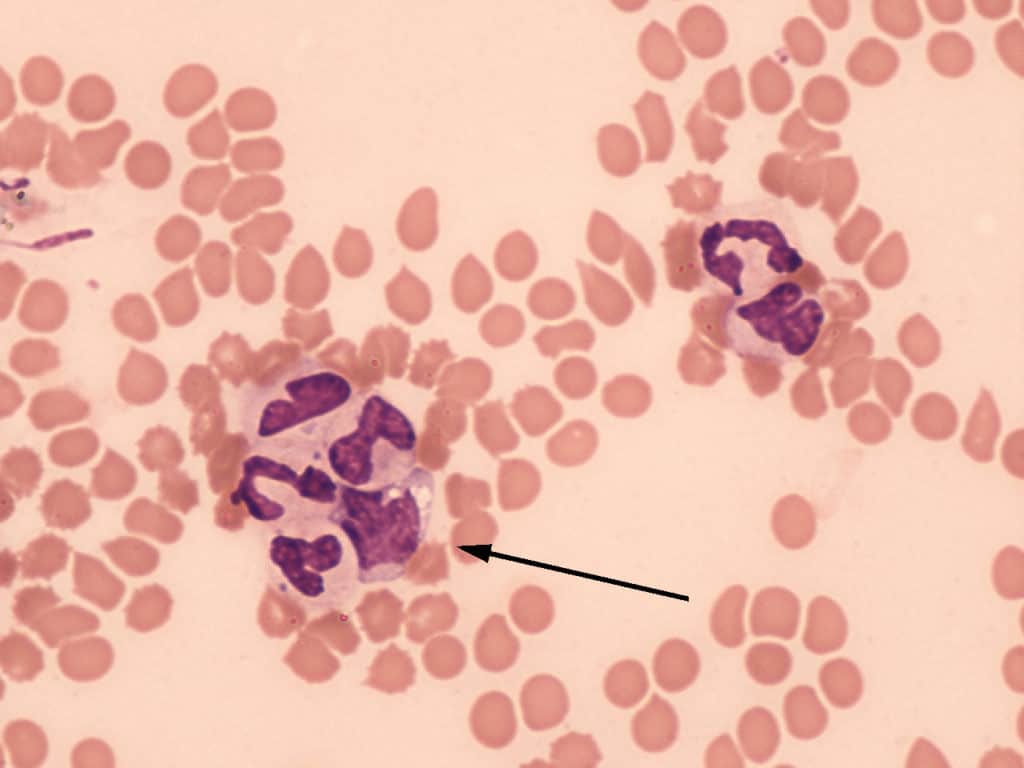Placental mammals, including dogs and humans, share a lot when it comes to immunity. The ability to fight off infection is essential to survival, and both species have evolved similar mechanisms to do so. That said, there are also some important differences between the dog immune system vs human system that pet owners should be aware of.
White Blood Cells
The workhorses of the immune system are white blood cells, also known as leukocytes. There are several different types of leukocytes, each with a unique function. But in general, these cells circulate throughout the body looking for invaders.
When they find one, they release chemicals that signal other immune cells to come to the rescue. They also produce antibodies, which are proteins that attach to viruses and bacteria and mark them for destruction.
Dogs have a higher number of leukocytes than humans, which helps them fight off infection more effectively. But this also means that their immune systems are more likely to overreact to things like pollen or dust, which can lead to allergies.

The Thymus
The thymus is a gland located in the chest that plays a critical role in immunity. This is where T cells, or killer cells, mature. T cells are responsible for attacking viruses and bacteria that have managed to slip past other defences.
They do this by releasing chemicals that destroy the invaders.
The thymus is larger in puppies than it is in adult dogs. This is because puppies need to build up their immunity quickly. In humans, the thymus begins to shrink after puberty and continues to do so as we age. This explains why older people are more susceptible to infection.
Bone Marrow
Bone marrow is the soft tissue inside bones where blood cells are made. This includes leukocytes, red blood cells, and platelets. All of these cells play an important role in immunity.
Dogs and humans have similar bone marrow, but there are some differences in the types of blood cells that are produced. For example, dogs have more B cells than humans. B cells are responsible for making antibodies. They also help to remember previous infections so that the body can mount a faster response if the same virus or bacteria comes around again.
Lymphatic System
The lymphatic system is a network of organs and vessels that help to fight infection. It includes the thymus, spleen, tonsils, and lymph nodes. This system produces and stores white blood cells. It also filters out bacteria and other harmful substances from the blood.
The lymphatic system is very important for immunity, but it doesn’t work the same in dogs as it does in humans. For example, the spleen is the main lymphoid organ in dogs. This means that it produces more white blood cells than any other organ.
The spleen also filters the blood and stores red blood cells. In humans, however, the bone marrow performs these functions.
Comparison of White Blood Cells Composition in Humans and Dogs
White blood cells are the main cells of the immune system in both humans and dogs. However, there are some differences in the composition of white blood cells between these two species. Here are some of the most notable differences:
Neutrophils
The average neutrophil count in humans is between 40 and 70 per cent. In dogs, however, neutrophils make up 60 to 80 per cent of all white blood cells. Dogs are, therefore, better equipped to fight off bacterial infections.
Lymphocytes
Lymphocytes are a type of white blood cell that helps to fight viral infections. In humans, lymphocytes make up 20 to 40 per cent of all white blood cells. In dogs, however, they only make up 15 to 30 per cent. This means that dogs are not as good at fighting off viral infections as humans.
Monocytes
Monocytes are a type of white blood cell that helps to fight off infections by destroying bacteria and other harmful organisms. The monocyte composition in both dogs and humans is similar, making up three to eight per cent of all white blood cells.
Eosinophils
Eosinophils are a type of white blood cell that helps to fight off allergies and parasitic infections. In humans, eosinophils make up one to three per cent, while in dogs, they make up two to four per cent.
Basophils
Basophils are a type of white blood cell that helps to fight off bacterial infections. Basophils make up 0.01 to 0.8 per cent of all white blood cells in humans. The same percentages apply to dogs.
Exposure to pathogens also plays a role in the development of the immune system. In general, dogs are exposed to more pathogens than humans. For instance, dogs are quadrupedal and often have their noses close to the ground, where they can pick up all sorts of bacteria and viruses. In addition, dogs often lick their wounds and clean up after themselves, which further exposes them to potential pathogens.
On the other hand, humans are more dexterous and often use tools, which helps to keep them further away from potential sources of infection. In addition, humans have developed sanitation practices, such as washing their hands and using toilet paper, which help to reduce exposure to potential pathogens.
Are Dogs Immune Systems Better Than Humans?
Both dogs and humans have highly adept immune systems. The physiological differences between these two species, however, mean that each is better equipped to fight off certain types of infections.
Dogs are generally more exposed to potential pathogens, and, as a result, their immune system has evolved to be better at fighting off bacterial infections.
Humans, on the other hand, are less exposed to potential pathogens, and their immune system has evolved to be better at fighting off viral infections.
Dogs are thought to have a better immune system than humans in general as they have a higher number of certain immune cells. They are also more often exposed to pathogens like bacteria, parasites and vector-borne infections. In some cases, environmental factors and certain breeds’ disadvantages will make some dogs highly subjective to disease though.
Which Dog Has the Strongest Immune System?
No two dogs are the same, and, as a result, no two dogs have the same immune system. Some dog breeds, however, are known for having particularly strong immune systems. These breeds include:
Australian Shepherd
The Australian Shepherd is a herding dog that was originally bred in Australia. This breed is known for its loyalty, intelligence, and agility. These dogs are also known for having a strong immune system.
Australian shepherds present fewer skin and coat problems, allergies, and sensitivities when compared to other breeds. They are less likely to develop autoimmune diseases, cancer, and infections. However, they require just as much care as any other breed.

German Pinscher
The German Pinscher is a medium-sized dog that was originally bred in Germany. This breed is known for being intelligent, alert, and playful. They have a strong immune system and are known for being great support dogs.
Pinschers are known to have fewer genetic health problems when compared to other breeds. They are less likely to develop autoimmune diseases, cancer, and infections. They require moderate grooming and exercise.
Beagle
The Beagle is a small-sized hound that was originally bred in England. This breed is known for being curious, friendly, and determined. With an average lifespan of 12-15 years, Beagles are also known for having a strong immune system.
Beagles are extremely energetic dogs that require a lot of exercise. They are also known to be food-motivated, which can lead to obesity if not monitored. Beagles are less likely to develop autoimmune diseases, cancer, and infections.
Siberian Husky
Known for their beautiful fur coats, Siberian Huskies are medium-sized dogs that were originally bred in Siberia. This breed is friendly, outgoing, and eager to please. They have a strong immune system and can live in cold climates.
Huskies require a lot of exercise and need to be brushed frequently to prevent matting. They are also known to be escape artists, so it is important to keep them in a secure area.
Conclusion
Both dogs and humans have strong immune systems. However, each species is better equipped to fight off certain infections. Health issues such as allergies may be less common in dogs, but all breeds require just as much care. When it comes to immune system strength, there is no one-size-fits-all answer. It all comes down to the individual dog and how well they are cared for.


